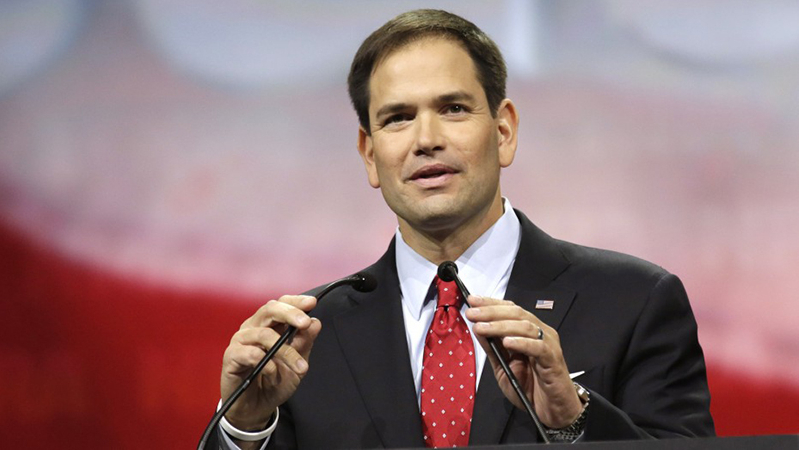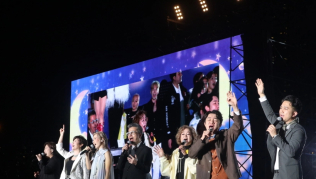
Florida Sen. Marco Rubio has claimed that supporters of same-sex marriage could portray the tenets of Christianity as "hate speech," arguing that Christians could face "a real and present danger" if they are successful.
In an interview with David Brody of CBN News, Rubio, who is running for the 2016 Republican Party nomination for president, contended that his Catholic faith drives policy positions on social issues, including gay marriage. He claimed that he and his family once dabbled in Mormonism and the Baptist church, but later felt the call to revert back to Catholicism.
"If you think about it, we are at the water's edge of the argument that mainstream Christian teaching is hate speech," Rubio said. "Today, we've reached the point in our society where if you do not support same-sex marriage you are labeled a homophobe and a hater. So what's the next step after that?"
Rubio contended that the next step for supporters of gay marriage would focus on attacking the tenets of the Christian faith.
"After they are done going after individuals, the next step is to argue that the teachings of mainstream Christianity, the catechism of the Catholic Church is hate speech and there's a real and present danger," Rubio said.
When it comes to danger, Rubio said he is ready to tackle them both here in the United States and around the world.
"You don't want to be engaged in every conflict on the planet. We're not the world's policemen," Rubio said. "But I question - what would happen in the alternative? If America doesn't lead, what happens? Well, what happens is chaos."
Based on the interview, it appeared Rubio's view on same-sex marriage could be tied to his views on traditional families.
"The family is the original cell of society," Rubio said. "It is the first and most important government. It is the first church. The family is the singular most important institution in society. It existed before government. It existed before laws."
The GOP presidential candidate argued that he "can't lead a nation" if he failed at his job of being "a husband to my wife and a father to my children."
"One day I will no longer be in politics," Rubio said. "One day I will no longer be a senator or a president or anything else. But I will always be a father and I will always be a husband."
However, Katie McDonough of Salon thought that Rubio's claim of a "real and present danger" to Christianity posed by supporters of same-sex marriage was "an absurd claim." She noted that there were two types of marriages in American society, civil and religious; she illustrated the difference between both forms of marriage using Catholics as an example.
"Civil marriage is a contract," McDonough wrote. "Catholics who get divorced can't remarry in some churches unless they get an annulment. But those same Catholics can get married many times over at their local court house."
McDonough explained the difference between a religious marriage and a civil marriage.
"One means something in the eyes of your faith, the other means something in the eyes of the state," McDonough wrote in comparing religious and civil marriage ceremonies respectively. "But when it comes to tax breaks or getting a green card for your partner, only the latter matters."
Regardless of his stance on gay marriage and other issues, Rubio plans to leave it up to God and the American people in choosing the next president of the United States.
"Ultimately my view of it is you go out and do the very best you can and ultimately it's going to turn out the way voters and God decide," Rubio said.







